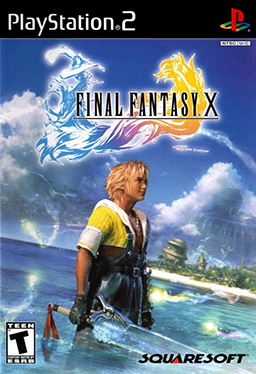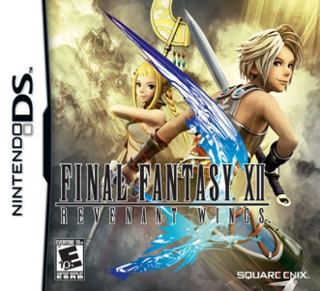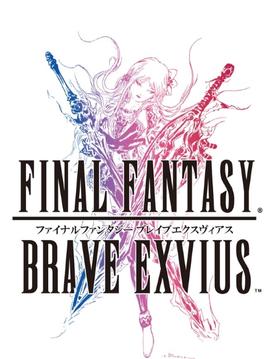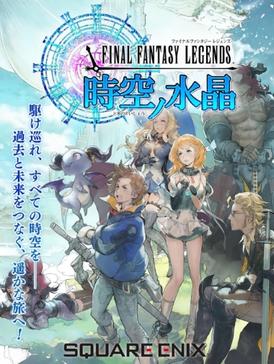
Final Fantasy X is a role-playing video game developed and published by Square as the tenth main entry in the Final Fantasy series. Originally released in 2001 for PlayStation 2, the game was re-released as Final Fantasy X/X-2 HD Remaster for PlayStation 3 and PlayStation Vita in 2013, for PlayStation 4 in 2015, Windows in 2016, and for Nintendo Switch and Xbox One in 2019. The game marks the Final Fantasy series transition from entirely pre-rendered backdrops to fully three-dimensional areas, and is also the first in the series to feature voice acting. Final Fantasy X replaces the Active Time Battle (ATB) system with the "Conditional Turn-Based Battle" (CTB) system, and uses a new leveling system called the "Sphere Grid".
A summons is a legal document issued by a court or by an administrative agency of government for various purposes.
In ancient Greek literature, an eidolon is the spirit-image of a living or dead person; it is a shade or phantom look-alike of the human form.
Summoning is the act of calling or summoning a spirit, demon, deity or other supernatural agent, in the Western mystery tradition.

Rydia of Mist is a fictional character in the Final Fantasy series. She appears in Final Fantasy IV as one of its protagonists. She is able to summon entities, as can others from her village. She was created by Yoshitaka Amano. Her design in Final Fantasy IV: The After Years was controversial, resulting in it being censored for an international release.
Guardian Force may refer to:

The tenth game of the Final Fantasy series, Square's 2001 best-selling role-playing video game Final Fantasy X features several fictional characters designed by Tetsuya Nomura who wanted the main characters' designs and names to be connected with their personalities and roles in the plot. The game takes place in Spira that features multiple tribes. The game's sequel released in 2003, Final Fantasy X-2, takes place two years after the events in Final Fantasy X and uses new and returning characters.

Final Fantasy IX, a PlayStation role-playing game consisting of four CD-ROMs, featured a cast containing a variety of major and minor characters. Players could control a maximum of four characters for combat at once, with eight main playable characters in the party and a few other, temporary characters.

Final Fantasy XII: Revenant Wings is a real-time tactical role-playing game developed by Think & Feel and Square Enix and published by Square Enix for the Nintendo DS. It is a stand-alone title related to the 2006 PlayStation 2 role-playing video game Final Fantasy XII.
A summons is a legal document issued by a court.
Yuna is a character from Square Enix's Final Fantasy series. She was introduced as the female protagonist, and one of the main playable characters of the 2001 role-playing video game Final Fantasy X. She appears as a summoner embarking on a journey to defeat the world-threatening monster, Sin, alongside her companions, including the male protagonist, Tidus. Yuna reappears in Final Fantasy X-2, where she becomes the protagonist, searching for a way to find Tidus two years after his disappearance. Other Square Enix games have featured Yuna, notably Dissidia 012 Final Fantasy.

Granblue Fantasy is a Japanese role-playing video game developed by Cygames for Android, iOS and web browsers, which first released in Japan in March 2014. The game reunites music composer Nobuo Uematsu and art director Hideo Minaba, who previously collaborated on Final Fantasy V (1992), VI (1994), and IX (2000) and Lost Odyssey (2007).

Final Fantasy Explorers is an action role-playing video game for the Nintendo 3DS. It features character job-oriented combat against classic Final Fantasy monsters and summons. It was released in Japan in December 2014, and in North America and Europe in January 2016.

Brave Frontier was a Japanese mobile role-playing game developed and published by A-Lim, originally for Apple's iOS and later for Android and Kindle Fire. It was first released in Japan by A-Lim on July 3, 2013, and later released worldwide by Gumi Asia on December 13, 2013. A sequel game titled Brave Frontier 2 was released only in Japan on February 22, 2018 while a global-exclusive sequel, titled Brave Frontier: The Last Summoner was slated for release in Q3 2018. The game ended all services across all platforms and regions on April 27, 2022. This decision was made by A-Lim on March 30.

Final Fantasy Brave Exvius is a free-to-play role-playing game developed by Alim and published by Square Enix for iOS, Android and Amazon Fire devices. A spin-off of the Final Fantasy series, the game marks as the first collaborative effort between Square-Enix and Alim. As of August 2019, the app had been downloaded over 40 million times worldwide. A tactical RPG spin-off titled War of the Visions: Final Fantasy Brave Exvius was released in Japan on November 14, 2019, and globally on March 25, 2020.

Final Fantasy Dimensions II, also known as Final Fantasy Legends II: Jikuu no Suishō in Japan, is a free-to-play game developed by Matrix Software and published by Square Enix for Android and iOS devices. It is the second game released in Japan with the "Final Fantasy Legends" title after Final Fantasy Legends: Hikari to Yami no Senshi. It revolves around traveling through time in order to save the world from a god.

Dissidia Final Fantasy NT is a fighting game with action role-playing elements developed by Koei Tecmo's Team Ninja and published by Square Enix for PlayStation 4 and Windows.
Final Fantasy is a media franchise created by Hironobu Sakaguchi, and developed and owned by Square Enix. The franchise centers on a series of fantasy and science fantasy role-playing video games (RPGs). The eponymous first game in the series, published in 1987, was conceived by Sakaguchi as his last-ditch effort in the game industry; the game was a success and spawned sequels. While most entries in the series are separate from each other, they have recurring elements carrying over between entries: these include plot themes and motifs, gameplay mechanics, and visual elements.










